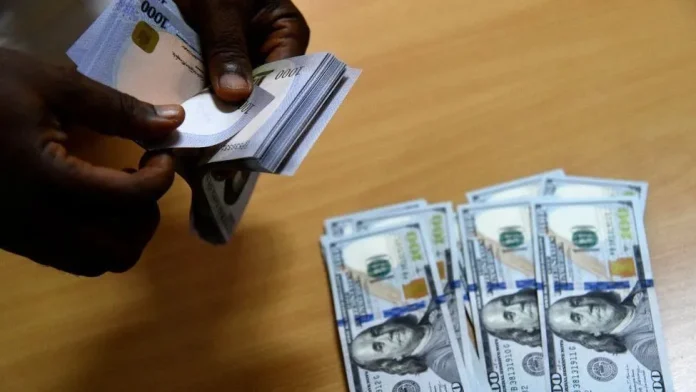The Nigerian naira fell 0.77% versus the US dollar to N1,606.56 in the official market on Wednesday, as high demand for foreign currency put pressure on FX supply.
The naira has crossed the barrier level once more, owing to sporadic foreign currency sales at the official window, which are intended to increase market liquidity. Today, official and parallel market rates meet, indicating that the naira is not as undervalued as the central bank claims.
According to investment banking analysts, the FX liquidity crisis continues to be a drag, pushing negative exchange rate moves in both the official and informal currency markets. The overall import bill remained high even after the local currency was devalued as part of the FX reform.
Some Nigerian companies depend on foreign inputs to further production. The Central Bank of Nigeria (CBN) is handicapped to defend the naira strongly due to weak net balance in the nation’s external reserves. Details obtained from the CBN today showed that gross external reserves decreased to $36.36 billion due to sustained outflows for FX payments.
“While the amount is sufficient to provide support for the naira in the foreign exchange market, significant amount out of the gross balance has been pledged or covenanted in international deals”, experts said.
The Nigerian independent foreign currency market fluctuated between N1,470 and N1,606, closing at N1,570.1 per UD dollar in the spot market on Friday. According to FMDQ data, the total volume of US dollars exchanged at Nigeria’s autonomous currency market fell by 13.4%, or -US$125.5 million, last week, closing at USD814.2 million on Friday.
According to Coronation Research, the NAFEM window had an influx of USD495.2 million. Foreign portfolio investors (FPIs) accounted for 28.1% of the total, followed by the CBN at 2.8%, non-bank corporates at 35.9%, exporters at 29.7%, and others at 3.5 percent.
In the parallel market, the naira rose 0.31% to settle at ₦1,605 per US dollar, as demand for FX for invisible payments grows. The Dual exchange rates depreciation caused the gap between official and parallel market rates to decline to less than N1.
Elsewhere, Brent crude declined by 1.61% to $78.27 per barrel, and West Texas Intermediate (WTI) crude fell by 1.77% to $74.19 per barrel on Wednesday. The price decline in the oil market was driven by growing concerns over weaker global demand and economic uncertainties, including reduced fuel consumption in China and the rise of electric vehicles.
In Europe, declining diesel demand due to weak manufacturing and changes in the vehicle fleet also contributed to the bearish sentiment. These factors outweighed earlier gains from geopolitical risks and supply threats, while the latest EIA data showed a smaller-than-expected decrease in U.S. crude oil inventories, adding further pressure to prices.













